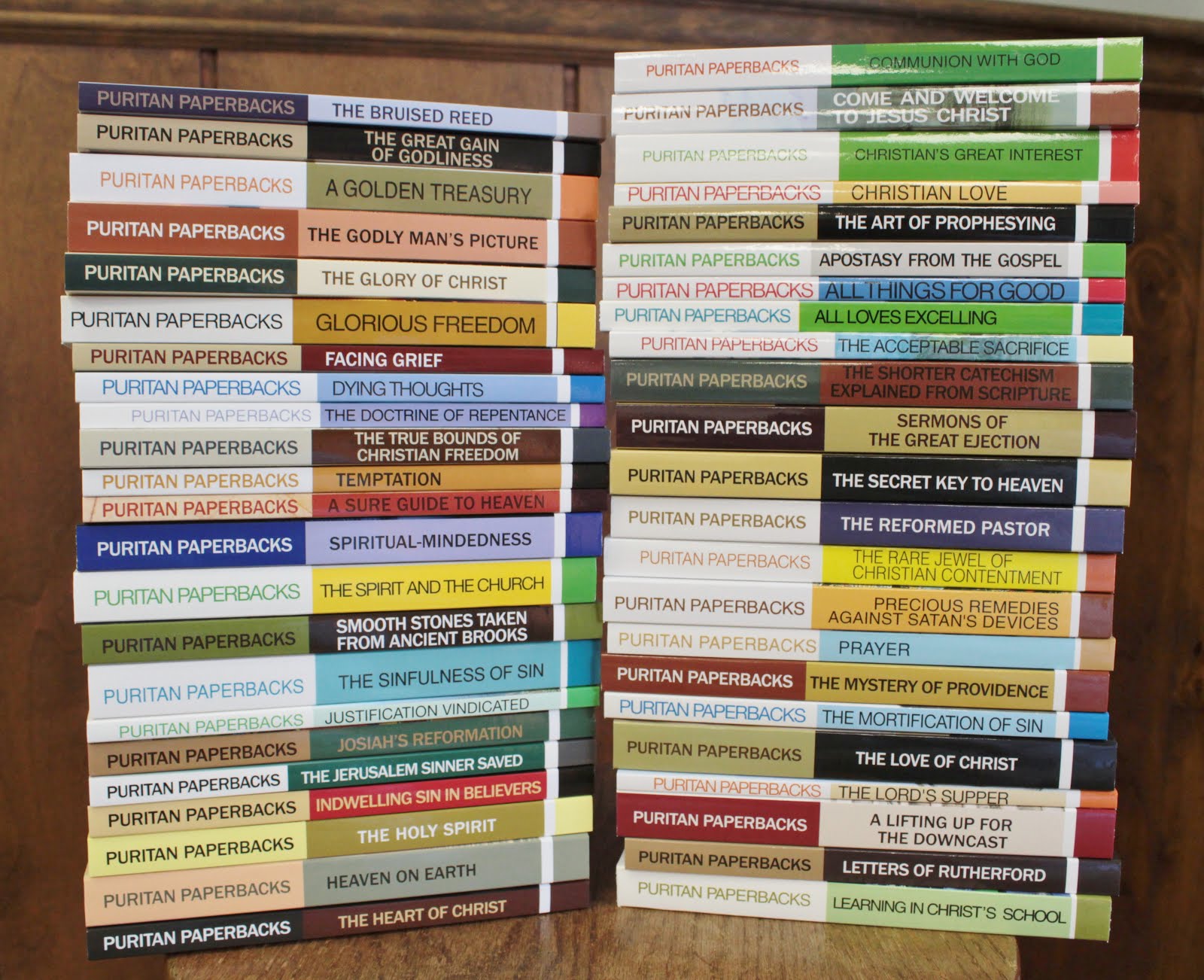Sin
I D E Thomas records some typical aphorisms from Adams on this subject. 'Heaven begins where sin ends. When gifts are in their eminency, sin may be in its prevalency. Sin is the strength of death and the death of strength. Iniquity can plead antiquity (Puritan Golden Treasury, pp 133, 116, 261).
Adams is clear on original sin, as is apparent from his sermon on Ps 58:4 A generation of serpents and his Meditations on the creed. (Works 1, p 71; Works 3, pp 194ff). In a sermon on Ga 5:9 he likens sin to leaven. As leaven is ‘not bread but the corruption that maketh bread’ so ‘sin is not a created quality, but the corruption of a created quality.’ Dough becomes leaven by adding salt so ‘The very same work that might be good and acceptable to God, by addition of our pravity becomes evil.’ As sour leaven makes bread tasty, ‘so by the ungodly’s most cursed sins God will advance his glory.’ As man cannot live on bread alone, much less on leaven so ‘No man can live for ever by his righteousness and good works, much less by his sins.’ ‘Lastly, sin and leaven are fitly compared for their sourness’ to God, angels, saints and the sinner himself.' (Works 2, pp 345-349)
In the second half of The fool and his sport Adams speaks about actual sin. He says some eight things to show that it must be taken very seriously. Sin is entirely contrary to goodness. It brings on judgements even in this life and where it does not that should make us alert to the fearful judgement ahead. Though little sense of guilt is present now, there will be a very great sense of it one day. Sin provokes God to anger. What a fearful thing to fall into his hands. Sin was punished even in heaven, when the angles that sinned were thrown down. It is so loathsome that God ‘could not save his own elect because of it, but by killing his own son.’ ‘Lastly, Sin shall be punished with death’ (Cf Works 1, pp 248-253)
In another place he compares sin with leprosy emphasising that sin is ubiquitous, soul infecting, hereditary, incurable, going on beyond death, shutting us out from fellowship with God and, unpurged by repentance, from heaven itself. (Cf Works 1, pp 442, 443)
We need to see that 'Every sin dishonours God and offers to stick ignominy upon that infinite majesty; therefore deserves an infinite penalty.' (Works 1, p 53)
The trouble is that we fall to temptation too easily. 'Satan doth diversify his drinks, to keep the wicked man’s appetite fresh and sharp. If he be weary of one sin, behold another, stands at his elbow.' (Works 1, p 170). ‘Temptation misleads the navigators with a pirate’s light’. Sin is like a bloody prince that having invited several great men to a great feast flattered them one by one an then chopped of their heads.
'She hath a siren’s voice, mermaid’s face, a Helen’s beauty, to tempt thee; but a leper’s touch, a serpent’s sting, a traitorous hand to wound thee. The best way to conquer sin is by Parthian war, to run away.'(Works 1, p 222).
What we need to see, therefore, is the harm that sin does. In the second part of The fatal banquet Adams goes to great lengths to show that ‘every sin robs some’. Some sins particularly harm God - atheism, heresy, sacrilege, faction and profaneness. Others particularly harm men - irreverence, murder, adultery, thievery, slander and flattery. Still others directly harm ourselves - pride, epicurism, idleness, envy, drunkenness, covetousness. All these should be incentives to turn from sin. (Works 1, pp 175-197).
This last section highlights Adams’ determination not to preach simply against sin in general terms but against particular sins. In another listing of sins he attacks epicurism, pride, lust, hypocrisy, avarice, usury, ambition, drunkenness, idleness, swearing, lying, busy bodying, flattery, ingratitude, anger, envy, contention, impatience, vainglory and papistry. (Works 1, pp 276-287). In A generation of serpents he attacks the ‘salamander’ of contentiousness, the ‘dart’ of anger, the ‘dipsas’ of drunkenness, the ‘crocodile’ of hypocrisy, the ‘cockatrice’ of prostitution, the ‘caterpillar’ of covetousness, the ‘asp’ of the Roman Catholic infiltrator, the ‘lizard’ or ‘tortoise’ of sloth, the ‘sea serpent’ of piracy, the ‘stellion’ of extortion and the ‘draco’ or devil himself. (Works 1, pp 77-80).
Besides these sins he also attacks failing to pay debts or keep promises, extortion, duelling and other sinful practice (See Works 1, pp 145, 146; 79; 183; 2, pp 321, 322, 556. Also eg suicide ‘No man must let the tenant out of the tenement, till God the landlord call for it.’ ‘As we cannot live without a permittis, so we must not die without a dimittis.’ Puritan Golden Treasury, p 289; making images of Christ, Works 2, p 291.)
Often he is very specific regarding the sins of certain callings. He rails against the tricks of shopkeepers who hide the truth, especially apothecaries who might cause their customers’ deaths. (Works 1, pp 146, 147). In one place he lists ‘many kinds of private thieves’. These are magistrates ruled by popularity, partiality or passion; lawyers who double deal or are dishonest in other ways; officers involved in bribery; tradesmen with false weights and measures, deficient goods and preying on men’s necessities; those who take advantage of the church to line their pockets; covetous landlords; engrossers who ‘hoard up commodities and by stopping their community raise the price’; enclosers who were still taking common land for themselves (a sin that had been preached against from at least the time of John Bradford, 1510?-1555); tap-house keepers and taverners who ‘chop away a good conscience for money’ and encourage drunkenness; flatterers who think of ways for the rich to make money; brokers and breakers by which he means unscrupulous pawnbrokers and bailiffs; usurers. (Works 1, pp 276-287). Adams often opposed this latter sin, little spoken against today. (Adams takes this even further when he speaks of characteristic sins of nations – Spanish pride, French lust, Italian poisoning, German drunkenness, English epicurism. Works 1, pp 368, 369.)
With all this negative content it must not be supposed that Adams fails to encourage virtue. In his A contemplation of the herbs mentioned above he advocates humility, patience, joy, charity, contentment, continence, meekness, frugality, peaceable love, pureness of heart, confidence in God’s promises, following Christ, casting care away and good resolution. (Works 2, pp 460-467). Among the gates to the City of peace are patience and beneficence. (Works 2, pp 316-319).
 Grace comes into the soul, as the morning sun into the world; first a dawning, then a light; and at last the sun in his full and excellent brightness. (From the sermon Heaven made sure on Ps 35.3)
The devil makes his Christmas-pie of lawyers' tongues and clerks' fingers.
Oh, be ashamed, Christians, that worldlings are more studious and industrious to make sure of pebbles, than you are to make sure of pearls.
Solomon tells us that it is the glory of man to pass by an offence. Herein God is most glorious, in that he passes by all the offences of his children. Lord, who can know thee and not love thee, know thee and not fear thee? We fear thee for thy justice, and love thee for thy mercy; yea, fear thee for thy mercy, and love thee for thy justice; for thou art infinitely good in both.
Despair is hope stark dead, presumption is hope stark mad.
Our mind is where our pleasure is, our heart is where our treasure is, our love is where our life is, but all these, our pleasure, treasure, and life, are reposed in Jesus Christ.
Repentance is a change of the mind, and regeneration is a change of the man.
Passion costs me too much to bestow it on every trifle.
Generosity
Let us make the poor our friends by our alms, not our enemies by our scorns. We had better have the ears of God full of their prayers, than heaps of money in our own coffers with their curses.
Humility
Humility wrestleth with God, like Jacob, and wins by yielding.
Law and Gospel
The Law gives menaces but the Gospel gives promises.
Marriage
There is no such fountain on earth as marriage.
Woman takes her being from man, man takes his well-being from woman.
As God by creation made two of one, so again by marriage He made one of two.
Grace comes into the soul, as the morning sun into the world; first a dawning, then a light; and at last the sun in his full and excellent brightness. (From the sermon Heaven made sure on Ps 35.3)
The devil makes his Christmas-pie of lawyers' tongues and clerks' fingers.
Oh, be ashamed, Christians, that worldlings are more studious and industrious to make sure of pebbles, than you are to make sure of pearls.
Solomon tells us that it is the glory of man to pass by an offence. Herein God is most glorious, in that he passes by all the offences of his children. Lord, who can know thee and not love thee, know thee and not fear thee? We fear thee for thy justice, and love thee for thy mercy; yea, fear thee for thy mercy, and love thee for thy justice; for thou art infinitely good in both.
Despair is hope stark dead, presumption is hope stark mad.
Our mind is where our pleasure is, our heart is where our treasure is, our love is where our life is, but all these, our pleasure, treasure, and life, are reposed in Jesus Christ.
Repentance is a change of the mind, and regeneration is a change of the man.
Passion costs me too much to bestow it on every trifle.
Generosity
Let us make the poor our friends by our alms, not our enemies by our scorns. We had better have the ears of God full of their prayers, than heaps of money in our own coffers with their curses.
Humility
Humility wrestleth with God, like Jacob, and wins by yielding.
Law and Gospel
The Law gives menaces but the Gospel gives promises.
Marriage
There is no such fountain on earth as marriage.
Woman takes her being from man, man takes his well-being from woman.
As God by creation made two of one, so again by marriage He made one of two.
















